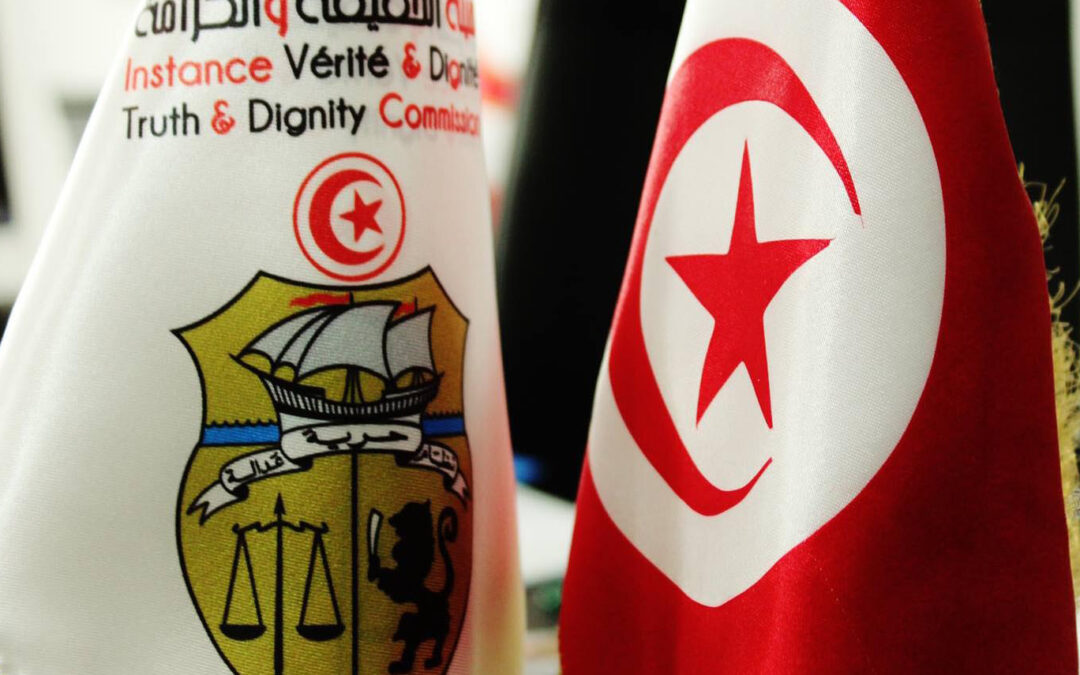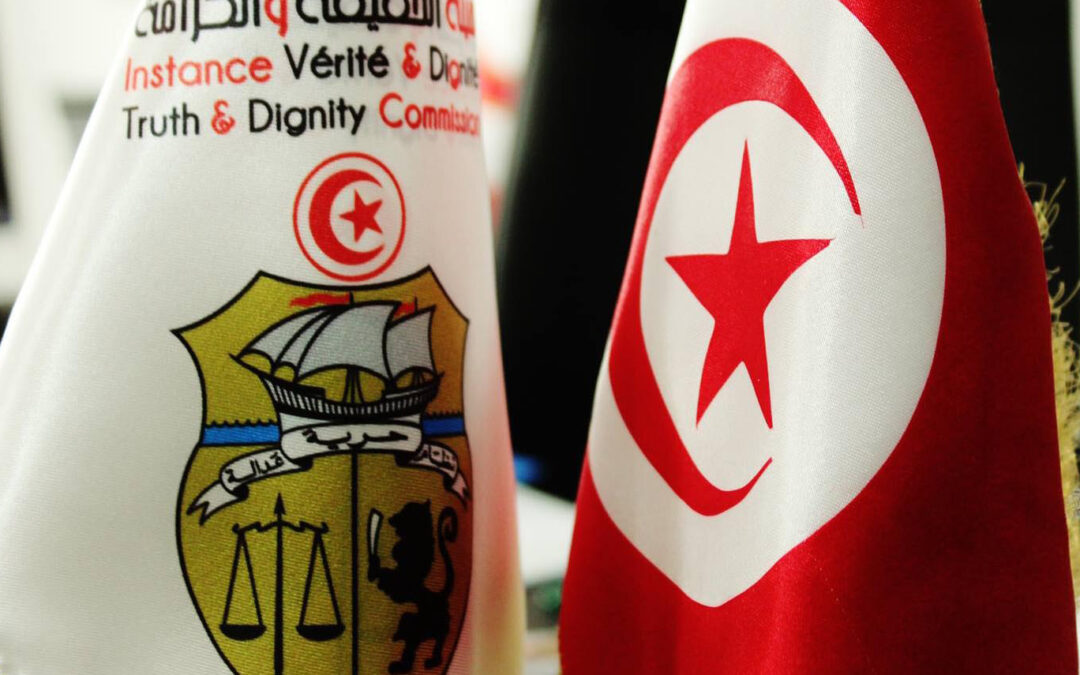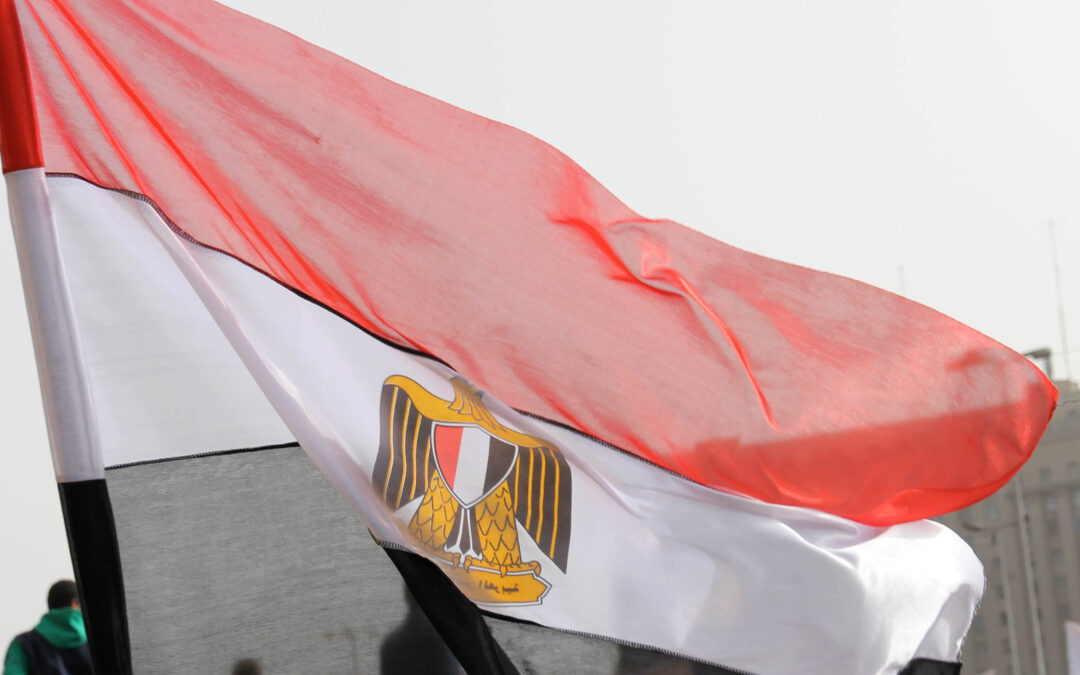
Apr 24, 2019 | News
Egypt is hosting an Africa human rights summit meeting beginning April 24, 2019, while its government is presiding over the worst human rights crisis in the country in recent decades.
The 64th Ordinary Session of the African Commission on Human and Peoples’ Rights (ACHPR), the African Union’s top rights body, will take place from April 24 to May 14 in Sharm al-Sheikh.
In addition to its systematic failure to respect and protect human rights at home, Egypt has also led efforts to undermine the Commission’s independence. The Commission should strongly raise Egypt’s human rights abuses at the meeting.
“Egypt is trying to appear like a country open for human rights delegates and summits while, at the same time, crushing all dissenting voices and its once-vibrant human rights community,” said Michael page, Middle East and North Africa director at Human Rights Watch.
“We know that many Egyptian and international organizations are not allowed to work freely in Egypt and cannot voice concerns without severe retaliation from the government,” he added.
The commission should ensure that all government and non-government delegations are able to participate freely in the summit. It should also make clear that it will strongly address any measures of reprisals by the Egyptian authorities against criticism of its practices.
A senior staff member of a leading Egyptian rights organization told Human Rights Watch that only three Egyptian human rights groups were considering participating in the summit because most of the groups were concerned about retaliation by the government.
In recent years, the Egyptian authorities have relentlessly cracked down on non-governmental organizations, issued the 2017 draconian law that effectively bans all independent work by nongovernmental groups, and prosecuted scores of staff workers of Egyptian organizations.
It has also frozen the assets of the most prominent human rights defenders in the country and their organizations and issued travel bans against scores of them.
In April 2018, the government said it would repeal the abusive 2017 NGO law but the government has not made a new draft law public.
The Egyptian authorities have also taken reprisals against human rights defenders and activists for cooperating with regional and international human rights monitors, including United Nations agencies and experts.
In late 2018, Egyptian authorities detained several citizens who met with the UN special rapporteur on adequate housing during her official mission to Egypt, as well as demolishing their houses and banning their travel. The government denied any wrongdoing and accused the UN High commissioner on human rights and other UN officials of breaching UN standards and adopting the “lies” of “terrorist” organizations.
In September 2017, officials stopped Ibrahim Metwally, a lawyer and co-founder of the Associations of the Families of the Disappeared, from traveling for meetings with UN officials in Geneva. Security agencies arrested him at the airport and held him incommunicado for a few days. He is still held in “pretrial detention” for farcical charges.
The Egyptian government has tried to undermine the independence of the Commission through spearheading the adoption of African Union’s Executive Council’s Decision 1015, paragraph 5. The provision, which was passed in June 2018, undermines the Commission’s independence by subjecting its work to control by the African Union member countries.
The Egyptian government has ignored decisions and resolutions the Commission and its experts have made addressing several violations and abuses including the crackdown on civil society, restrictions on freedom of religion, unfair trials and mass death sentences, arbitrary arrests, and sexual violence.
The ACHPR session comes at a time when the Egyptian authorities have been severely oppressing dissent and obliterating any space for peaceful expression or gathering before the public vote held between April 19-22 on highly draconian constitutional amendments that will strengthen the military control of public and political life and further undermine the already weak judicial independence.
Egyptian human rights organization have documented the arrests of over 160 people, often in mass arrests, since February in relation to the ongoing crackdown on dissidents and perceived critics.
These amendments, and several other laws that President Abdel Fattah al-Sisi has approved in recent years, such as new media laws and laws to expand the use of military courts to try civilians, violate international law standards including the African Charter on Human and Peoples’ Rights.
Since al-Sisi secured a second term in elections that were largely neither free nor fair in March 2018, his security forces have escalated a campaign of intimidation, violence, and arbitrary arrests against political opponents, activists, and many others who have voiced even mild criticism of the government.
The Egyptian government and state media have framed this repression under the guise of combating terrorism, and al-Sisi has increasingly invoked terrorism and the country’s state of emergency law to silence peaceful activists.
In July 2013, the African Union Peace and Security Council suspended Egypt’s membership in all African Union activities following the forcible removal of former President Mohamed Morsy by the army, which was led by al-Sisi, then the defense minister. The suspension ended after al-Sisi was elected President in June 2014.
But Egypt has failed to effectively investigate or to hold any official or member of the security forces accountable for the mass killings of protesters in the summer of 2013 despite several national and international calls, including by the ACHPR, and despite incriminating evidence.
In August 2013, Egyptian security forces most likely killed at least 817 people in a few hours during its violent dispersal of the largely peaceful pro-Morsy sit-in in Cairo’s Raba’ Square. The killings likely amounted to crimes against humanity.
“Through such summits, Egypt is trying to whitewash its dire record of abuses,” George Kegoro, executive director of Kenya Human Rights Commission said. “The African human rights commission should take the opportunity of this meeting to vigorously engage the Egypt government on its own actions that threaten the rights, and the very lives, of many Egyptians.”
The co-signing organizations are:
Andalus Institute for Tolerance and Anti-Violence Studies
Belady Center for Rights and Freedoms
Cairo Institute for Human Rights Studies
Committee for Justice|
EuroMed Rights
Egyptian Front for Human Rights
Human Rights Watch
Kenya Human Rights Commission
The Egyptian Commission for Rights and Freedoms
The Freedom Initiative
The International Commission of Jurists
Egypt-African Rights Summit-News-2019-ARA (Press release, PDF, Arabic)
Contact:
Said Benarbia, Director of ICJ’s MENA Programme, t: +41-79-878-35-46 ; e: said.benarbia(a)icj.org
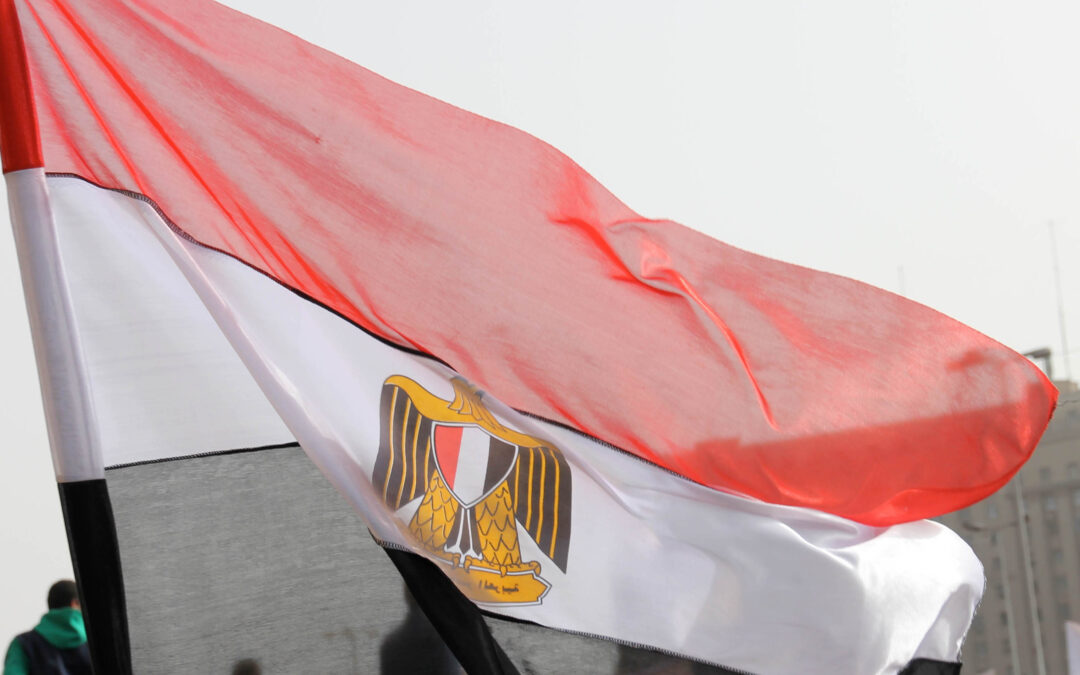
Apr 20, 2019
The Egyptian government should withdraw proposed constitutional amendments that will consolidate authoritarian rule, Human Rights Watch and the ICJ said today.
The amendments will undermine the Egyptian judiciary’s dwindling independence and expand the military’s power to intervene in political life.
On April 16, 2019, Parliament finalized and approved the amendments, which a pro-government bloc proposed in early February. On April 17, the National Election Authority said a public referendum was set for April 19-22. The official draft amendments were only published in the official Gazette on April 18.
The vote takes place amid ongoing mass arrests and a relentless crackdown on fundamental freedoms, including currently targeting those calling for boycotting or rejecting the amendments. Given the ongoing repression, and that political opposition in Egypt has dwindled to a nominal presence, a free and fair vote will be impossible.
“These amendments aim to smother Egyptians’ aspirations to live in dignity and under the rule of law,” said Michael Page, deputy Middle East and North Africa director at Human Rights Watch. “The authorities should immediately halt efforts to pass these amendments by threatening, disappearing, and persecuting peaceful critics and dissidents.”
The 596-seat Parliament, which is dominated by members loyal to President Abdel Fattah al-Sisi and which routinely rubber-stamps government decisions, passed the amendments by a vote of 531 to 22. During Parliament’s “societal dialogue” sessions, few critics were allowed be take part in the discussions about the amendments.
“The amendments are a flagrant assault on the rule of law and independence of the judiciary in Egypt. If adopted, they will effectively place the military above the law and the Constitution and cement the executive’s subordination of judicial and prosecutorial authorities,” said Said Benarbia, ICJ’s MENA Director.
The initial amendments would have allowed al-Sisi to run for two more six-year terms, after his current second term. The final amendments will permit him to run for one additional term and also extends his current term from four to six years, a move that attracted criticism inside Egypt.
The amendments are particularly troubling given the widespread suppression of fundamental freedoms, including freedoms of expression, association, and assembly and the right to political participation, all of which are essential to a free and fair public vote.
A coalition of 10 secular and leftist political parties called for rejecting the amendments. Local news reports say that the public prosecutor is investigating an opposition political figure, Hamdeen Sabbahy, for “instigating chaos” and insulting the state because of his opposition to the amendments.
The authorities have also started aggressive smear campaigns against several activists and award-winning actors, and are exploring the potential prosecution of them following their participation in public advocacy efforts about Egypt’s human rights situation in Washington, DC and European capital cities in March.
In February and March alone, authorities arrested or prosecuted over 160 dissidents or perceived dissidents, according to Egyptian rights lawyers who spoke with Human Rights Watch.
Authorities also briefly arrested another opposition figure, Mamdouh Hamza, a businessman, on February 16, accusing him of “publishing false news” and citing critical posts on his Twitter account. They released him on bail a few hours later. Al-Araby al-Jadeed newspaper said that other opposition figures have received telephoned “threats.”
On April 10, the authorities blocked an independent campaign website, “Batel,” which, in the context of the referendum, could be translated as “void.” Egyptians living abroad started the campaign, inviting Egyptians to register their “No” votes online. Access to the site was blocked in Egypt only hours after its launch, but the campaign still managed to amass tens of thousands of “No” voters in a few days.
The authorities blocked seven other alternative websites that the campaign made to circumvent the efforts to block access in Egypt.
In their efforts to block access to the campaign, the authorities have blocked about 34,000 websites, according to an internet-monitoring website.
Since mid-2017, the authorities have blocked access to hundreds of websites including most of the independent news websites and some for human rights organizations.
The independent news website Mada Masr reported on February 10 that security authorities instructed mainstream media in Egypt not to report on the amendments, and in particular not to give critics any coverage. Mada Masr also reported that, at least since December 2018, meetings between staff from al-Sisi’s office and intelligence officials have been held at the General Intelligence Agency “on a nearly daily basis,” coordinated by al-Sisi’s son Mahmoud, a senior intelligence officer, to push the amendments.
A few days after parliamentarians proposed the amendments, supportive placards, signs, and billboards were erected across the country.
On April 16, Mada Masr, quoting witnesses in East Cairo, reported that security authorities had pressed business owners to post the signs. The government denied imposing fines on those who refused, but the authorities refused to permit opposition protests on March 27, citing “security threats.”
The al-Mashhad website also published a leaked memo from judges of the State Council, the body that contains the Supreme Administrative Court, to the Parliament, which said that the amendments “demolish judicial independence.” The State Council’s deputy chief justice, Judge Samir Yousef, later confirmed that he drafted the memo.
In July 2013, then-defense minister al-Sisi led the forcible removal of Egypt’s first freely elected president, Mohamed Morsy. Al-Sisi was officially elected president in 2014 and re-elected in 2018, after his government arrested or intimidated all of the other potential candidates.
Al-Sisi has presided over a government that has committed widespread and systematic human rights violations, including mass killings of protesters, arbitrary arrests, enforced disappearances, extrajudicial killings of detainees, and torture and other ill-treatment in detention. Some of these crimes most likely constitute crimes against humanity.
The nationwide crackdown first targeted al-Sisi’s Islamist opponents but quickly expanded to include political dissidents, human rights lawyers and defenders, journalists, artists, gay men, lesbians, transsexuals, and virtually anyone expressing the mildest critical views. Government security forces, including the army, violate human rights with almost total impunity.
Since April 2017, the government has imposed a state of emergency, which has been used to justify undermining judicial independence, and used abusive counterterrorism and media laws to suppress fundamental freedoms.
President al-Sisi has apparently long opposed many of the human rights guarantees in the current constitution, saying in September 2015 that “the Constitution was written with good intentions. But countries cannot be built with good intentions.” The parliament speaker, Ali Abd al-Aal, said that a new constitution should be drafted in 5 or 10 years. Critics say this will happen when al-Sisi nears the end of his third and final term.
In an April 17 news conference, Judge Lasheen Ibrahim, the head of the National Elections Authority, called on Egyptians to vote and said that amending the constitution was justified because “it has to fit the [society’s] situation.”
“Egypt’s autocracy is shifting into overdrive to re-establish the ‘President-for-Life’ model, beloved by dictators in the region and despised by their citizens,” Page said. “But it’s a model that recent experience in Egypt and neighboring countries has demonstrated is not built to last.”
Egypt-Constitutional amendments-news-press release-2019-ENG (PDF, press release, Arabic)
For more information, please contact:
In Berlin, for Human Rights Watch, Amr Magdi (English, Arabic): +1-646-659-8020 (mobile); or magdia@hrw.org. Twitter: @ganobi
In New York, for Human Rights Watch, Michael Page (English): +1-617-453-8063 (mobile); or pagem@hrw.org. Twitter: @MichaelARPage
In Geneva, for the International Commission of Jurists, Said Benarbia: 0041798783546; or said.benarbia@icj.org
For more information about the abusive amendments, please read:
Egypt Constitutional Amendments: Unaccountable Military, Unchecked President and a Subordinated Judiciary
Egypt-Constitutional amendments-advocacy-analysis brief-2019-ENG (PDF, English)
Egypt-Constitutional amendments-advocacy-analysis brief-2019-ARA (PDF, Arabic)
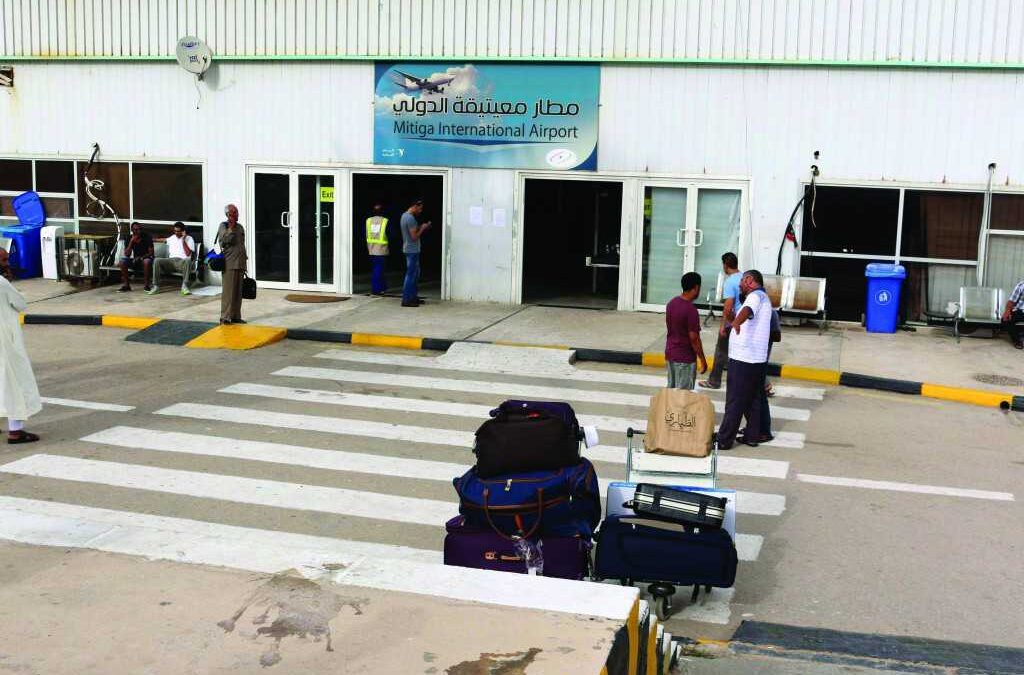
Apr 10, 2019 | News
Today, the ICJ called on the parties to the conflict in Libya to comply with their obligations under international humanitarian law (IHL) and international human rights law to protect affected people, particularly the civilian population.
The ICJ also called on the UN Security Council to urge the parties to respect international law.
The gravity of hostilities led UNSMIL to postpone the UN-sponsored Libyan National Conference aimed at finding a solution to the ongoing political deadlock late yesterday. The Conference was planned to commence on 14 April in Ghadames.
“The postponement of the political dialogue is a major setback for peace and the rule of law in Libya, and for the Libyan population,” said Kate Vigneswaran, the ICJ’s Senior Legal Advisor for the Middle East and North Africa Programme.
“Civilians taking no part in the fighting have already suffered the brunt of hostilities between the warring parties in Libya. Those who remain, including the thousands of migrants held in arbitrary detention, are at grave risk,” she added.
IHL requires parties to the conflict to respect the principles of distinction and proportionality and take precautionary measures to avoid, or in any event minimize, incidental loss of civilian life, injury to civilians and damage to civilian objects.
“The parties must ensure that not only civilians but civilian objects are protected, and that measures are taken to ensure they don’t become collateral casualties,” said Kate Vigneswaran.
“International actors should continue to push for a political solution to the situation in Libya based on the rule of law and incorporating human rights protections to avoid further suffering,” she added.
On April 7, the UN Security Council reportedly discussed the situation in Libya but could not find the necessary consensus to issue an official statement.
According to the AFP, the Russian Federation blocked a statement that would have called on Field Marshall Khalifa Haftar, head of the House of Representatives backed Libyan National Army, to stop military operations, on all the parties to de-escalate and for “those who undermine Libya’s peace and security to be held to account.”
“The Security Council should adopt a resolution calling for the protection of civilians and accountability for serious violations of international human rights and humanitarian law. Member States should desist from exercising their veto powers to block resolutions intended to ensure compliance with international law,” said Vigneswaran.
Reportedly, at least 27 people have been killed, including two doctors and two other civilians, 80 have been injured, and more than 2,800 persons have been displaced as a result of the fighting. The only functioning airport in Tripoli (above photo), the hub of the fighting, was closed Monday after being hit by an airstrike by the Libyan National Army (LNA).
Read this article in Arabic
Contact:
Kate Vigneswaran, ICJ Senior Legal Adviser, t: +31624894664, e: kate.vigneswaran(a)icj.org
